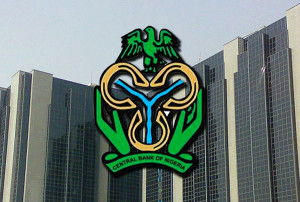
A finance analyst, Dr. Biodun Adedipe, says the Central Bank of Nigeria (CBN) has the capacity to sustain ongoing interventions in the foreign exchange.
Adedipe advised that the CBN should continue to intervene in the foreign exchange market in spite of the pressure on the external reserves.
Speaking at the Finance Correspondents Association of Nigeria (FICAN) Half-Year Economic Review in Lagos on Thursday, he said that with the 30-day moving average, the reserves rose from $29.07 billion at end of 2015 to $30.36 billion in July 11.
Adedipe said the liquid portion of the reserves stood at $29.62 billion, which translated to 12.31 months of imports coverage.
He said the exchange rate steadily depreciated to N168 to dollar at the end of 2014 to N197 to dollar at end of 2015, N305 to dollar at the end of 2016 and N305.85 to dollar as at July 19, 2017.
Adedipe said the required international benchmark was for external reserves to be able to sustain at least six months of the import bill.
He said that Nigeria was still doing great with its reserves covering over 12 months of imports.
The economist said Nigeria’s total import bill in the first half of this year was N2.2 trillion ($7.218 billion) on the average of monthly figure of $2.406 billion.
He said that due to recession, the current import figure was on decline from $14.171 billion or monthly average of $4.724 billion in the first quarter of 2015.
Adedipe said that Nigeria’s external trade had picked up since the first quarter of last year with imports declining.
He described as aberration calls on the CBN to freely float the naira, adding that no country in the world adopted such approach on exchange rate management.
The consultant said the “ongoing spike” in naira exchange rate occurred after the CBN was pressured by several stakeholders to adopt flexible exchange rate system and freely float the naira.
“That of course, was a huge aberration, as there is no country that freely floats its currency (even the US) – the job of the central bank is to defend and protect its currency by intervening in the markets as necessary.
“The voices are coming from too many experts that know nothing other than to echo what the Breton Woods institutions have said,” Adedipe said.
On interest rate, he said the Monetary Policy Rate (MPR), the benchmark rate, was raised to 14 per cent per annum in July 2016 from 12 per cent per annum.
Adedipe, however, said that changes in the MPR had not sufficiently impacted on bank deposit/lending rates as well as changes in banking credit volumes.
“The most volatile interest rate variant is the inter-bank rate, which is more of a reflection of the liquidity in the banking system (Federal allocations) rather than of changes in the MPR.
“The deposit and prime lending rates moved in adverse directions, respectively with deposits becoming cheaper to the banks and borrowing more expensive to borrowing customers.
“Actual lending rates were much higher – mostly at 29 per cent and above,” he said.
Adedipe said he supported Federal Government’s plans to reflate the economy through borrowing.
He, however, said the borrowed funds should not be used to fund recurrent expenditure, but should be used to fund infrastructure and projects that could generate enough resources to repay the loans.
“When an economy is seeking to get out of recession, the typical response is for the government to embark on massive spending which is referred to as fiscal stimulus.
“Often times, the government may lack the volume required and will, therefore, have to borrow beyond the normal range for an economy that is either in boom or the recovery mode.
“No professional economist will argue against borrowing to stimulate a recessed economy.
“But the question will always be to spend on what? If the answer is infrastructure, my take is to go ahead and borrow as much as you can,” Adedipe said.